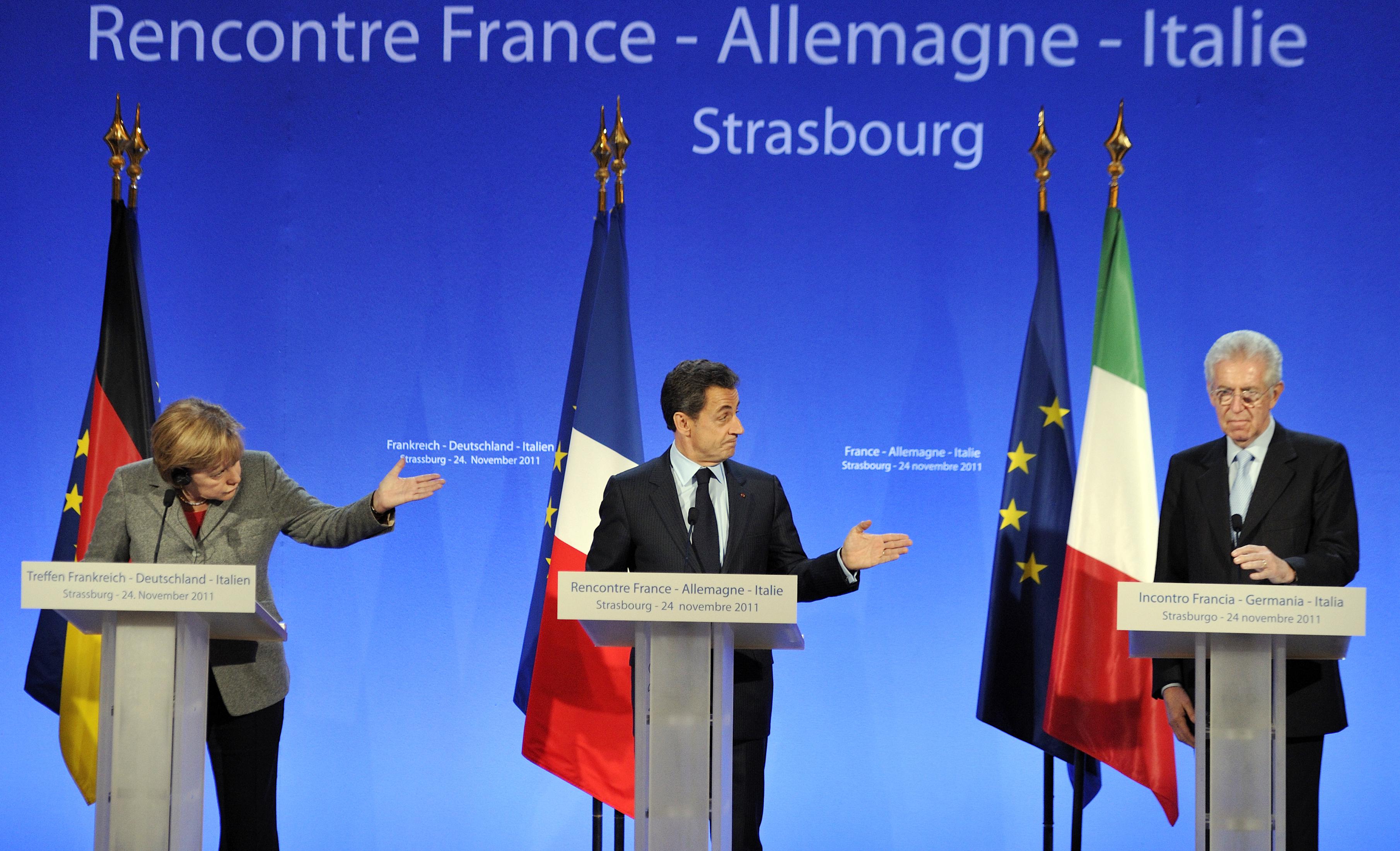News about the governments of Germany and France working together to push dramatic changes to the treaty structure of the European Union are good news in the sense that Europe has suffered from a deficit of consensus and decisive action, so cooperation is good. But it’s really worth underscoring that the political concept Merkel has put at the center of her European agenda – much stricter enforceable budget rules for national governments – is irrelevant to the issues at hand.
The core thing you need to know is that if you went back to the halcyon days of 2005 and 2006, nothing the governments of Ireland and Spain and Italy were doing would violate these rules. At the time, those countries were enjoying robust economic growth and with it very manageable budget deficits. It’s fair to argue that some of these states were actually making implicit fiscal promises (to bail out banks, for example) that the official statistics didn’t account for, but Merkel’s reforms don’t touch any of that. The difference that her policy would make is that after the asymetrical downturn hit, with monetary policy unable to stabilize macroeconomic conditions in both Germany and Spain, the Spanish government would have had to have undertaken an even more severe package of pro-cyclical spending cuts and tax hikes. In other words, Europe would have gotten the same pre-crisis mistakes but then implemented the same post-crisis mistakes on a more rapid time table. None of the underlying issues of differential productivity, lack of labor market integration, lack of rich-poor fiscal transfers, lack of uniform bank supervision, lack of lender of last resort, or extremely low Mediterannean women’s workforce participation would be addressed here.
The optimistic read here is that this is all just part of a political bargaining process. To get the measures that are needed to resolve the crisis, the German government may want to demand various things that aren’t necessary to resolve the crisis but that it favors for separate reasons. If so, then fair enough.
